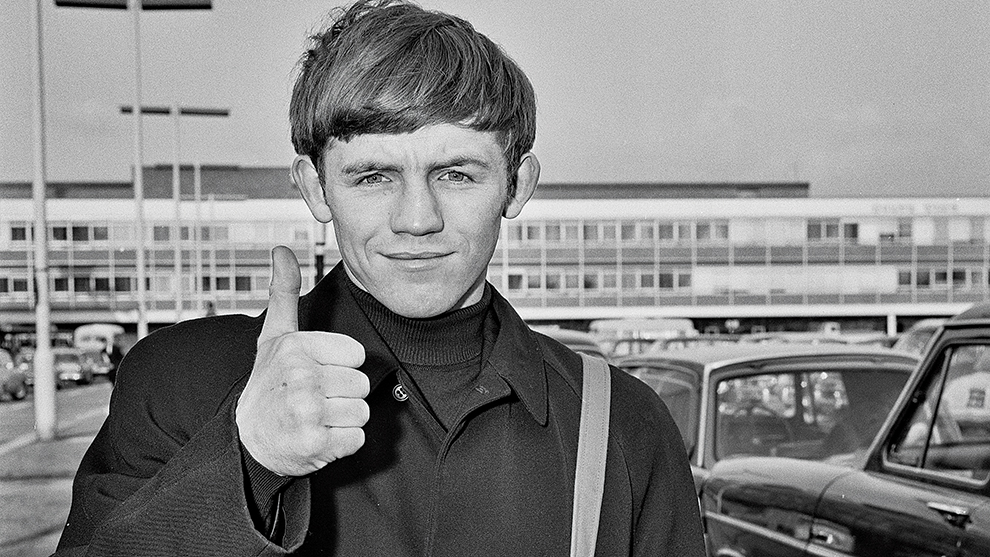ONCE upon a time in Tokyo, two great men fought 15 rounds for the world bantamweight title. That is the path Paul Butler took this week, a road to true boxing immortality.
In 1965, a little Scouser with the most brilliant technique, travelled for days to reach his destination. Alan Rudkin was the best British bantamweight and Fighting Harada was the world’s best bantamweight. Those were simple days, the two best.
Contrary to popular belief, I was not ringside at the Nipon Budokan in Tokyo on that late November night. However, the great fighting sage, George Whiting, was there, but he was in a bit of a state having been involved in a car crash on his way to the fight. Whiting and the Daily Mirror’s Peter Wilson and Reg Gutteridge of the Evening Standard, all looked shaken at the fight after the crash.
It was 15 rounds, undisputed title; the WBA and WBC each had their titles on the line. It was the early days of our modern chaos.
Rudkin’s trainer, Freddie Hill, had his bag of tricks ready. He also had Rudkin ready. Harada was in and out of saunas, always wrapped in clothing and struggling at the weight. The hope was that the “weight-tortured Harada will run out of gas.” Harada arrived at the fight hotel and was, according to the sublime George, “led to the steam-room rather than the dining-room. Happy warrior Harada is a living example of the laugh-and-grow-fat routine.”
18th July 1969: Fighting Harada, aka Masahiko Harada (Central Press/Getty Images)
Inside the Budokan, 15,000 locals filled the seats and there was also a shipload of Liverpool seamen. According to Whiting, a British merchant ship had conveniently docked and the men on board grabbed tickets. A telegram arrived on the day from Terry Downes. “Box clever, mate.” It was the simple message, the one way to win the fight.
An hour before the fight, Hill, wearing his signature white vest, climbed through the ropes to inspect the rare four-roped ring. Freddie was a big lump, about 15-stone and he must have looked a sight. Hill is, I would argue, one of the very best and overlooked trainers in our boxing history. A man for all seasons and types and venues and outcomes. A late-night guru with his magic swabs and training contraptions. Manny Steward once took photographs of Hill’s equipment when Lennox Lewis trained at the Fitzroy Lodge.
“Liverpool and, indeed, the whole of England can be proud of Alan Rudkin. At no time had he very much chance of winning, or of keeping out the bulldozing attacks of the chunky Harada.” It went the full 15, Rudkin never backed down and “he was on his feet and trading punishment just as willingly at the end as in the first round.”
It was an intense fight. Whiting was filing live copy on a telephone from the ringside pit in the glorious hall. Round-by-round he filed his words on the previous three-minutes of action. His copy is living and breathing every single moment of the full 15 rounds. “For the final minute they stood slamming each other with every ounce of guts and glory they possessed.” Then it was over, and Harada was still champion.
When it was finally finished, Whiting wrote: “Whatever Alan Rudkin does in future he will never have a prouder hour than this.” It is not often that I say this, but I believe the peerless Whiting was wrong.
Harada had beaten the icon Eder Jofre for the title. Jofre had been unbeaten in 50 fights when they met. After Rudkin, it was Lionel Rose, the Australian idol, and Harada for the title. Rose won and in 1969, Rudkin travelled to Melbourne to fight Rose. The boys had hard careers to make a success before television and multiple sanctioning bodies made life a bit easier. Not to mention simple transport. It was a mission to get boxers and their tiny retinues to distant lands.
Rudkin went for the Rose fight after losing and winning British title fights over 15 rounds and dropping a tight one over 15 in Spain for the European title. The losing British title fight was controversial and the referee had to have a police escort out of Wembley on the night. Damn, the fighting life of top fighters was difficult once. Can you even begin to imagine one of today’s boxers losing a world title fight and then having to go to Spain for a European crack, then losing a British title fight and then winning the rematch and all in the time it takes to import two or three no-hopers for easy knockover jobs. It is a history that will be left untouched and perhaps that is right.
Rudkin lost a split to Rose. That tells you all you need to know. However, his 1969 was not finished. Rose lost the title to the truly brutal Ruben Olivares. Rudkin then had two more fights, including a British title defence, before traveling to the Forum in Inglewood to fight Olivares for the bantamweight world title. Olivares was unbeaten in 55 fights at the time. That venue, at that time and especially against that sacred fighter, was possibly the most hostile and dangerous place on earth. Rudkin lost a world title fight for the third time on foreign soil and for the third time against a truly memorable fighter. If you have conversations about the finest British boxers to never win a world title, make sure Rudkin is near the top.
That road to any world title, by the way, can still be hard. Rudkin and Butler know just how hard it can be when you chase giants and find monsters.
